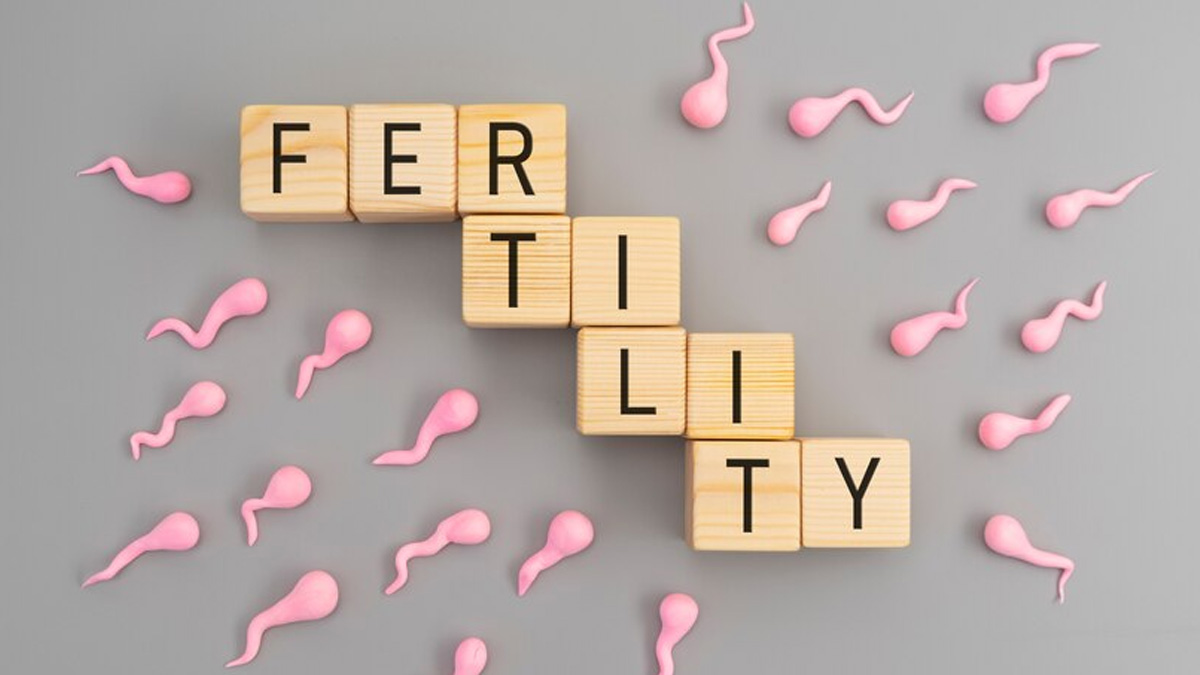
Pregnancy is an awaited milestone for many individuals. For some, it is not that important. While it all comes down to choice, biologically, certain age groups may have a better chance of conceiving without complications. In an interaction with Only My Health, Dr Prachi Benara, Consultant, Birla Fertility and IVF, Gurugram, said, “As women age, their fertility gradually declines. Women are born with a finite number of eggs, and as they get older, the quantity and quality of their eggs decrease.” For those of you in your 30s, the doctor has some useful tips when it comes to improving fertility.
Table of Content:-
Also Read: IVF Explained: What is IVF? Doctor Sheds Light On Need, Risks and Success
How Age Impacts Female Fertility?

According to the American College of Obstetricians and Gynecologists (ACOG), a woman's peak reproductive years are between the late teens and late 20s. By age 30, fertility starts to decline and this decline occurs faster once you reach mid-30s and by 45, fertility has declined so much that getting pregnant naturally is unlikely, as per ACOG.
Dr Benara shared that the most significant decline in fertility occurs after the age of 35 and accelerates after 40. “The chances of getting pregnant each month decrease, and the risk of miscarriage and chromosomal abnormalities in the fetus increases,” she added. Here are some ways how age impacts female fertility:
Ovarian reserve
Ovarian reserve refers to the quantity and quality of a woman's eggs. “As women age, their ovarian reserve diminishes, which means they have fewer eggs available for fertilization. This decline can lead to difficulties in conceiving naturally and a higher likelihood of requiring assisted reproductive technologies such as in vitro fertilization (IVF),” said Dr Benara.
Increased time to conceive
According to the doctor, as women age, it often takes longer to conceive. This is due to factors such as irregular ovulation, decreased egg quality, and an increased risk of conditions that can affect fertility, such as endometriosis or uterine fibroids.
Increased risk of pregnancy complications
Advanced maternal age (usually defined as 35 or older) is associated with a higher risk of pregnancy complications, such as gestational diabetes, high blood pressure, preterm birth, and cesarean section, as per Dr Benara. There is also an increased risk of chromosomal abnormalities in babies, such as Down syndrome. A research published in the British Medical Journal (BMJ) found that the risk of miscarriage in women aged 20 to 24 years is around 8.9 percent, which increases to 74.7 percent for individuals aged 45 years or above.
Male fertility
While men can father children well into their later years, there is evidence to suggest that advanced paternal age can also have some impact on fertility. Older men may have a slightly reduced sperm count, decreased sperm motility, and an increased risk of genetic abnormalities in their sperm.
Also Read: Doctor Explains The Process Of IVF
When Is The Best Time To Conceive?

Dr Benara said, “The best time to become pregnant is a personal choice but biologically, sooner the better as people aged more than 30 years are at an increased risk of failed pregnancy, miscarriages or babies with congenital anomalies.”
Tips To Improve Fertility In Your 30s
Here are some of the ways to improve fertility in your 30s:
Maintain a healthy lifestyle
Adopting a healthy lifestyle can positively impact fertility. This includes following a balanced diet rich in fruits, vegetables, whole grains, and lean proteins. Avoiding excessive alcohol consumption, quitting smoking, and managing stress levels are also important. Regular exercise can help maintain a healthy weight and promote overall well-being.
Understand your menstrual cycle

Familiarize yourself with your menstrual cycle and track it using methods like calendar tracking, basal body temperature charting, or ovulation predictor kits. This can help identify the timing of ovulation and the fertile window, optimizing the chances of conception
Manage underlying health conditions
Certain medical conditions, such as polycystic ovary syndrome (PCOS), endometriosis, or thyroid disorders, can affect fertility. If you have any underlying health conditions, work with your healthcare provider to manage them effectively and optimize fertility.
Seek medical advice if needed
If you have been trying to conceive for a year (or six months if you're over 35) without success, it may be beneficial to consult with a fertility specialist. They can assess both partners' fertility, conduct necessary tests, and recommend appropriate interventions or treatments
Also watch this video
How we keep this article up to date:
We work with experts and keep a close eye on the latest in health and wellness. Whenever there is a new research or helpful information, we update our articles with accurate and useful advice.
Current Version